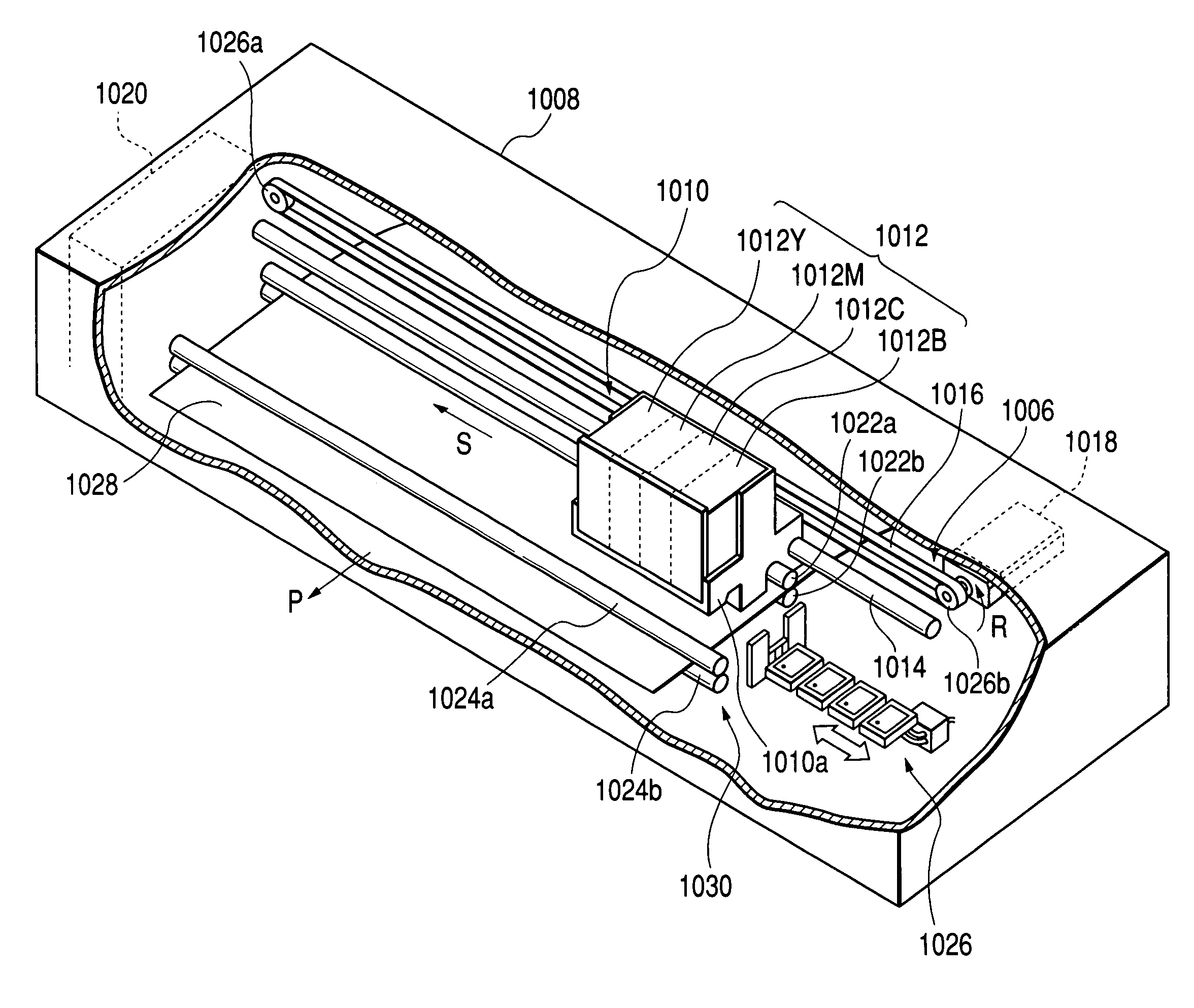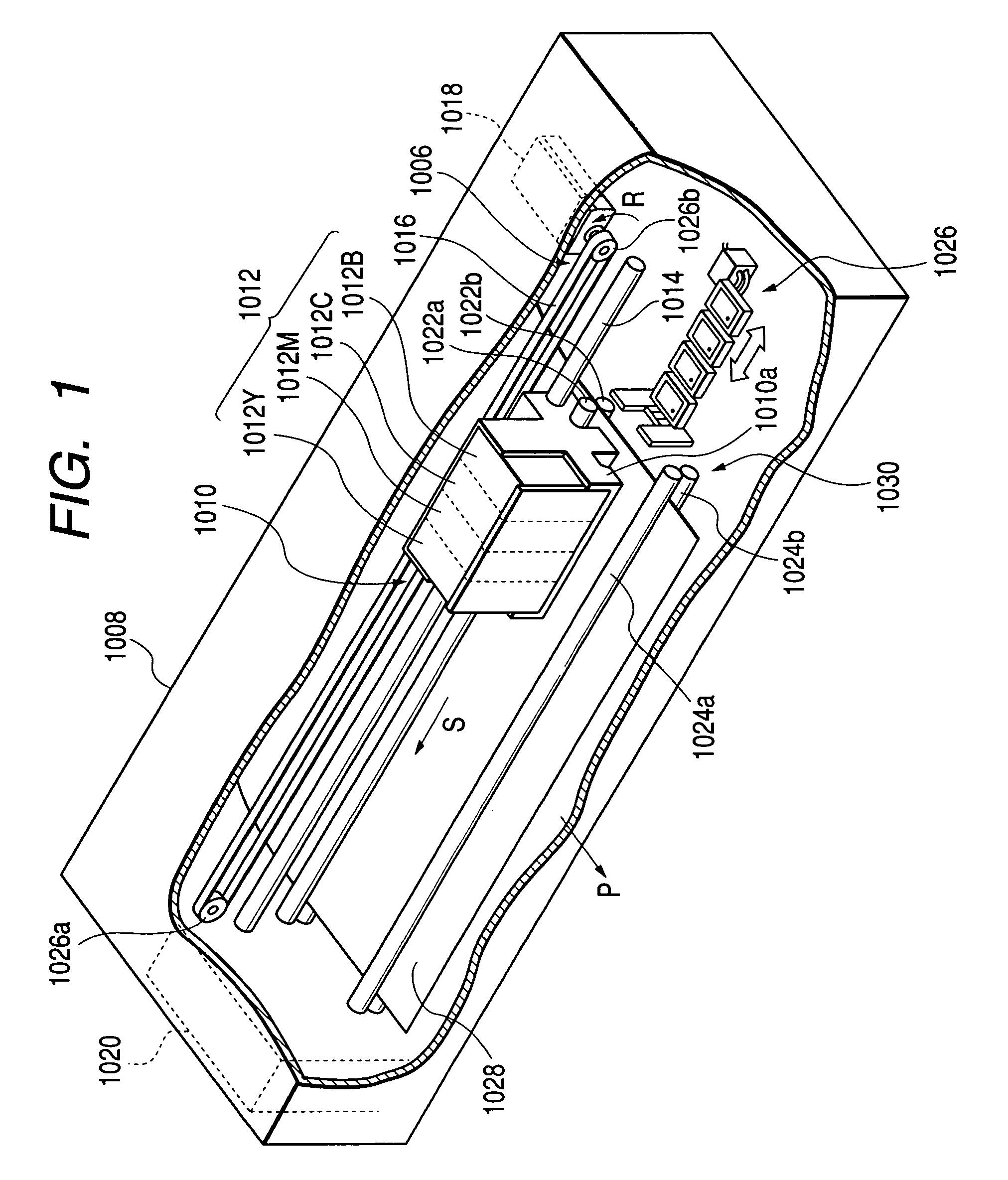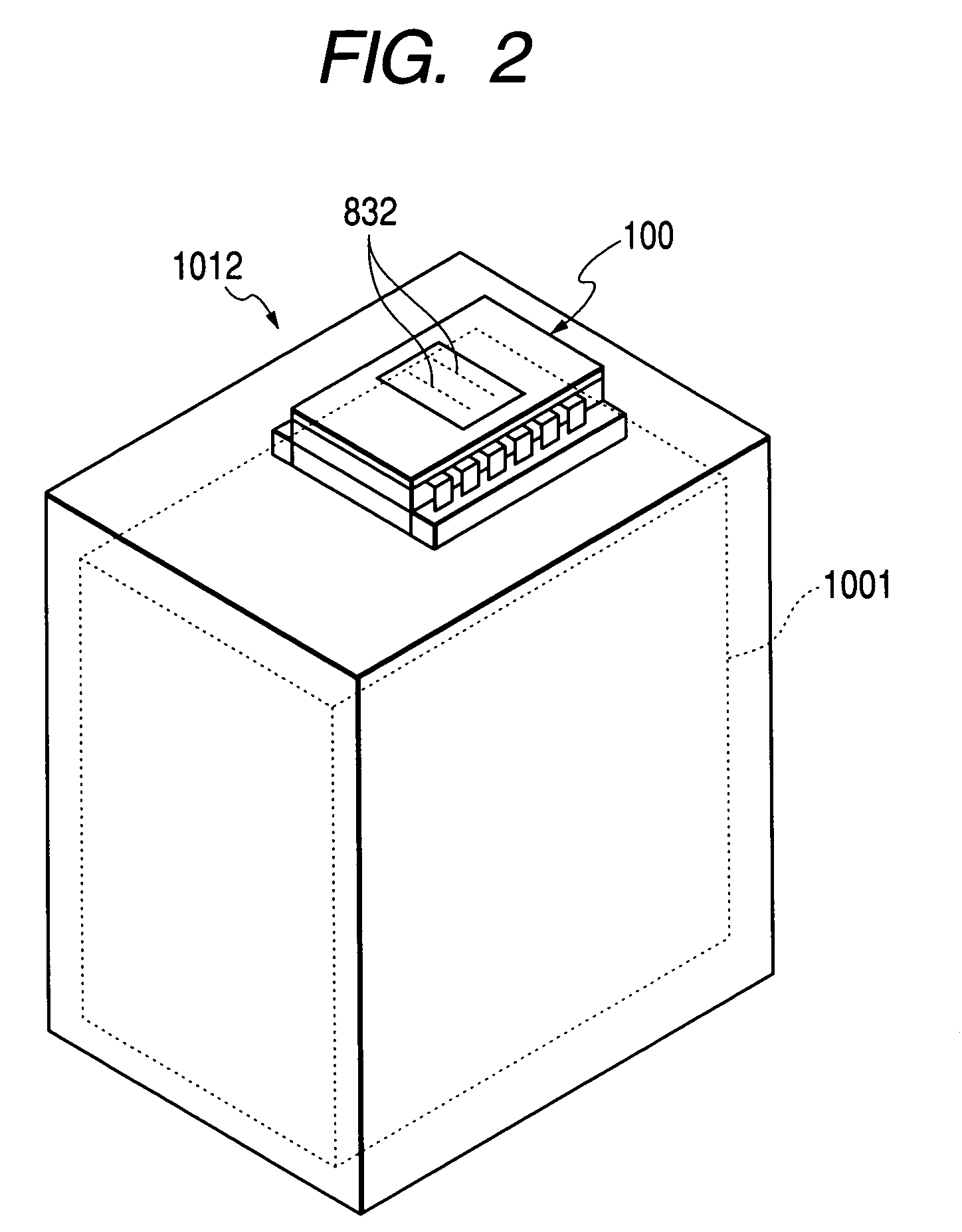Ink-jet recording ink, ink-jet recording method, and ink-jet recording apparatus
a technology of inkjet recording and inkjet printing, which is applied in the direction of coupling contact members, coupling device connections, instruments, etc., can solve the problems of not coming about in conventional recording, great subject to be settled, and curling phenomenon, etc., to achieve good recording head sticking resistance, high driving frequency, and high level
- Summary
- Abstract
- Description
- Claims
- Application Information
AI Technical Summary
Benefits of technology
Problems solved by technology
Method used
Image
Examples
example 1
[0080](Preparation of Pigment Dispersion Solution 1)
[0081]First, using benzyl methacrylate and methacrylic acid as raw materials, an AB type block polymer having an acid value of 250 and a weight-average molecular weight of 3,000 was produced by a conventional method, which was further neutralized with an aqueous potassium hydroxide solution and then diluted with ion-exchanged water to prepare a homogeneous aqueous 50% by weight polymer solution. Then, 180 g of the aqueous polymer solution obtained, 100 g of C.I. Pigment Blue 15:3 and 220 g of ion-exchanged water were mixed, and then these were stirred for 0.5 hour by a mechanical means. Subsequently, using Microfluidizer (registered trademark; a high shear processor manufactured by MFIC Corporation), the resultant mixture was processed by passing it five times through the interior of an interaction chamber under application of a liquid pressure of about 10,000 psi (about 70 MPa). Further, the pigment dispersion solution obtained as...
example 2
[0085](Preparation of Pigment Dispersion Solution 2)
[0086]100 g of the same aqueous polymer solution as that used in Preparation of Pigment Dispersion Solution 1, 100 g of C.I. Pigment Red 122 and 300 g of ion-exchanged water were mixed, and then these were stirred for 0.5 hour by a mechanical means. Subsequently, using Microfluidizer, the resultant mixture was processed by passing it five times through the interior of an interaction chamber under application of a liquid pressure of about 10,000 psi (about 70 MPa). Further, the pigment dispersion solution obtained as described above was subjected to centrifugation processing (at 12,000 rpm for 20 minutes) to remove non-dispersible matter which contained coarse particles. Thus, magenta color Pigment Dispersion Solution 2 was obtained. Pigment Dispersion Solution 2 thus obtained was in a pigment concentration of 10% by weight and a dispersant concentration of 5% by weight.
[0087](Preparation of Ink 2)
[0088]To prepare Ink 2, the above m...
example 3
[0090](Preparation of Pigment Dispersion Solution 3)
[0091]First, using benzyl acrylate and methacrylic acid as raw materials, an AB type block polymer having an acid value of 300 and a weight-average molecular weight of 4,000 was produced by a conventional method, which was further neutralized with an aqueous potassium hydroxide solution and then diluted with ion-exchanged water to prepare a homogeneous aqueous 50% by weight polymer solution. Then, 110 g of the above aqueous polymer solution, 100 g of C.I. Pigment Yellow 128 and 290 g of ion-exchanged water were mixed, and then these were stirred for 0.5 hour by a mechanical means. Subsequently, using Microfluidizer, the resultant mixture was processed by passing it five times through the interior of an interaction chamber under application of a liquid pressure of about 10,000 psi (about 70 MPa). Further, the pigment dispersion solution obtained as described above was subjected to centrifugation processing (at 12,000 rpm for 20 minu...
PUM
| Property | Measurement | Unit |
|---|---|---|
| ejection volume | aaaaa | aaaaa |
| driving frequency | aaaaa | aaaaa |
| surface tension | aaaaa | aaaaa |
Abstract
Description
Claims
Application Information
 Login to View More
Login to View More - R&D
- Intellectual Property
- Life Sciences
- Materials
- Tech Scout
- Unparalleled Data Quality
- Higher Quality Content
- 60% Fewer Hallucinations
Browse by: Latest US Patents, China's latest patents, Technical Efficacy Thesaurus, Application Domain, Technology Topic, Popular Technical Reports.
© 2025 PatSnap. All rights reserved.Legal|Privacy policy|Modern Slavery Act Transparency Statement|Sitemap|About US| Contact US: help@patsnap.com



